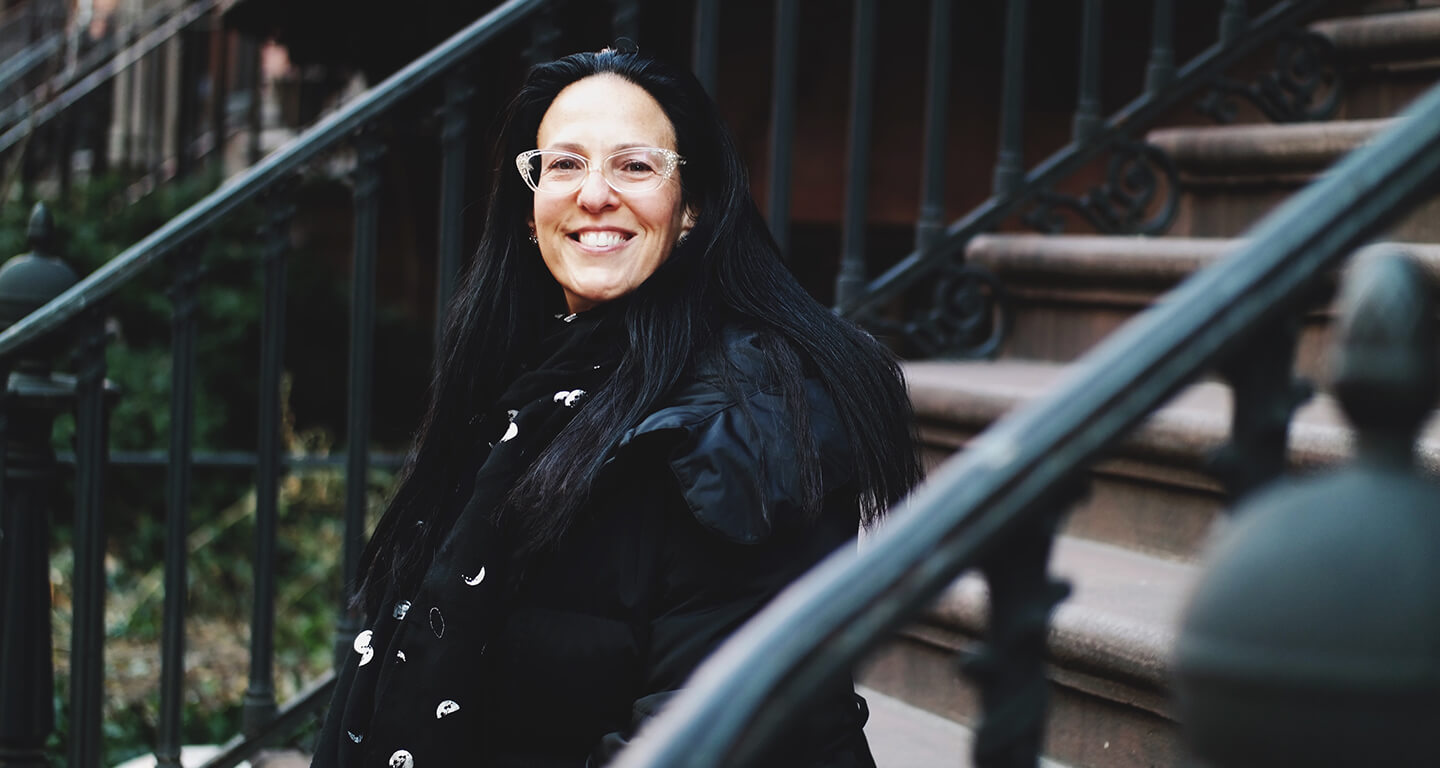
The Six P's: A Code for High-frequency Performance and Happiness
I have been a CEO, an institutional VP, a senior director, a division head, a project manager, a producer and a consultant. I have 20 years of global executive experience. I hold an MBA and an MA from Ivy League Universities. My most recent position was VP of a business unit inside a branding and marketing agency. And earlier this year, I found myself laid off and jobless.
Being laid off and jobless (LO & J) is an experience in being ‘unmoored’. We are unmoored from our livelihood, identity, routine, stability, security, momentum, confidence, and even our sense of purpose. It’s isolating, it’s vulnerable, it’s uncomfortable, and when we are home on a Wednesday afternoon, it’s unnervingly, searingly quiet. Basically, being LO & J sucks.
But it also doesn’t. I’m sure you are thinking, doesn’t everything you just mentioned define the very essence of suck-ness? Well, it does. But not completely. Inside the suck-ness there is lots to be gained. This story is about what I learned, and what I gained.

A step back to set context
As I mentioned, my last job was VP of an Immersive Multimedia Design BU inside a branding agency. My long time dear friend ‘S’ is the Founder/CEO. My job was a bullseye. Smart/Awesome Colleagues – check. Healthy/Thriving Culture – check. Strong salary – check. Work product I care deeply about – check. Autonomy – check. Creativity – check. Beautiful office – check. And it came to an end after 18 months. You might be asking yourself, with all the checks, why was my time there so short?
Our division was innovation/R&D. We were utilized as thought leaders, researchers, differentiators and shiny pennies for new business development, but revenue generating projects were not coming quickly or regularly enough. In the end, revenue talks. After a year, I was informed that the parent company was defunding R&D. Therefore, I needed to shift my focus to producing revenue. I knew what was at stake. And yet, for some reason, which was not clear to me until much later, I resisted.
Pivoting from what I was brought into the company to do (think), to what the company now needed me to do (sell), would mean starting a new business process from scratch, on a product with a long sales cycle, within an urgent time frame (i.e ‘make a lot from nothing in a very short time’).
I persisted with thinking, and I resisted selling, while hoping Hail Mary big revenue projects would land on my desk. I was waiting on others to produce the revenue to support the BU that I was responsible for (which in my experience is its own definition of crazy- expecting success while relinquishing responsibility for creating it). The consequences came several months later, as anticipated. Our division had been defunded. I was LO & J.
During the exit debrief conversation with ‘S’, he asked, “what was I resisting, and why”? He wasn’t pissed or bummed or judgmental, he simply asked as a friend. I was stunned by his question. I told him I didn’t have the answer, but I was determined to find it.
Searching for answers
The search for the answer ended up taking me months and, taking me Down. Down into a cave of self-blame and self-judgment, then deeper Down into painful crevasses of self-exploration, self-analysis, self-reflection, self-help books, and finally, at the bottom, self-awareness.
Down at the bottom, a funny thing happened. Space opened up for something else besides hitting myself on the head with a metaphorical cast-iron frying pan. It was curiosity. I asked myself about times in my life when I was the most productive, the most engaged, the most ferociously dedicated, and thus, the most successful. What were the conditions, both situationally, and in my Self, that fostered my best work? What were the qualities? What did I need?
The answers appeared as I was writing in my journal one morning at the darkest bottom of the Down. By coincidence, all of the words began with the letter P. Once I got them on paper, I drew them as a set of overlapping concentric circles, like a double Venn diagram, each P making up its own circle, with a bullseye in the middle. There were six. I titled the journal entry, The Six P’s: the internal and external conditions that enable my highest-level performance, and my highest frequency happiness.

The Six P’s: Passion, Purpose, Profit, Participation, People, Potential
Passion: Do I love the work I am doing? Do I love the work product I am representing (ideas, products, services)? Do I care about it? Am I a fan of it? Am I in alignment and integrity with my role, and also with the thing I am responsible for helping shepherd to success?
Purpose: Does the work contribute to a higher frequency on this planet, i.e. service, justice, problem solving, communication, understanding, access, information, inspiration, solutions, or all of the above?
Profit: Am I earning an income that aligns with my highest frequency? Does my income support the lifestyle I choose to live, with surplus? Does my income enable me to enjoy freedom, flexibility, empowerment, choice, comfort, adventure, philanthropy, and sharing plus some lovely luxury and indulgence? Are my earnings capped? Is there equity? Is there incentive?
Participation: Is the vision for the company (or idea/service/product) a shared one? Or does it belong to a single entity (i.e. founder/CEO/Board as sole vision keeper)? Is there space to collaborate and to co-create how the company evolves, adapts and changes over time? Is the leadership receptive and iterative? Am I contributing to the evolving vision?
People: Do I respect, admire and learn from the people I work with? Is there an ease of understanding and rapport? Do we trust each other? Do we simultaneously support and challenge each other? Do we encourage each other’s growth while enjoying each other’s company? Do we give each other space? Are we kind and respectful to each other?
Potential: Is there an exponential Prosperity, growth and impact quotient? What are the future possibilities, and are they limited in any specific area, i.e. financial, personal or professional development? Is there capacity for social, industrial and/or economic paradigm shift (did you catch all the stealth P’s inside of Potential? ha!).
When I climbed out of spelunking my own psyche and into the light, the Six P’s were safely in my pocket. I worked with them, six P-ing my recent decisions again and again until I made sense of them. The P’s gave a name to the qualities that were in place when I was a super-performer and a super-earner, and the qualities that were missing for me at my last awesome job. The Six P’s enabled me to answer the question, “why was I resisting”?
My “Six P” assessment of why I resisted
Passion: Yes. I cared deeply about, and was committed to my roles and responsibilities, the team I worked with, the company I worked for, and the work product.
Purpose: No. What gives me purpose is the “What”. What is being branded and marketed? Is the What being used for service, human impact, and/or up-leveling the greater good? Who are we helping? What are we contributing?
Profit: Yes. I made a strong base salary. My income provided for the things I need and care about.
Participation: No. The vision was the jurisdiction of the visionary; in this case, CEO ‘S’. There is no right or wrong in this style of Founder/CEO leadership. I simply learned that for me, whether I am Founder/CEO or not, I need to participate in visioning. When I am fully utilized, I am fully engaged, and when I am fully engaged, I fully kick ass.
People: Yes. My colleagues were brilliant, dedicated, caring, curious, collaborative and multi-dimensional people. The culture was one of sharing, learning, and social cohesion. We laughed. A lot.
Potential: No. This P has more layers than the others, and some of them were yes’s. Personal and professional development get a yes. But overall, Potential skewed No for me as an individual, my place in the company, and the company’s place in the industry.
I called ‘S’ and when he picked up, I pretty much screamed into the phone, “I have the answer to your question!”. His response: “That’s awesome! What question?” We had a good laugh. I told him about my Six P’s, and how three out of six were spot on. There were three missing P’s, and why those P’s are core and necessary for me. And that was how I came answer to S’s question, “why did I resist”? This is the kind of spectacular person ‘S’ is: he received my analysis with total equanimity and total support, said he believed in me fully, and knew that I had everything in place to manifest The Six P’s in my next job. Although he did say, “I got another P for you: P for Plan. What’s your plan?” Oh yeah, that. (This is why I love ‘S’).
I am pretty sure we can all agree, job searching is really hard, and mostly sucks. Mainly because it’s uncomfortable. It’s uncomfortable because we are vulnerable. It’s vulnerable to be feeling our way down a dark hallway, knocking on closed doors. The opportunities we want are on the other sides of the doors, sentried by doorkeepers. The doorkeepers have criteria, timing, and agendas that shift constantly and are totally unknown to us.
But we seekers have a choice. We are intrepid and courageous souls. Therefore, of course we will continue to feel our way down the dark hallways. We will keep knocking on closed doors, and we will keep making dazzling cases to the doorkeepers that we are exactly who they seek, because we are! But now it doesn’t have to feel so uncomfortable. By using The Six P’s, we can choose which doors to knock on. And when the doors open, because they always do, we can choose if the light on the other side is bright enough for us to want to step through.

frog, part of Capgemini Invent is a global design and innovation firm. We transform businesses at scale by creating systems of brand, product and service that deliver a distinctly better experience. We strive to touch hearts and move markets. Our passion is to transform ideas into realities. We partner with clients to anticipate the future, evolve organizations and advance the human experience.
We respect your privacy
We use Cookies to improve your experience on our website. They help us to improve site performance, present you relevant advertising and enable you to share content in social media. You may accept all Cookies, or choose to manage them individually. You can change your settings at any time by clicking Cookie Settings available in the footer of every page. For more information related to the Cookies, please visit our Cookie Policy.